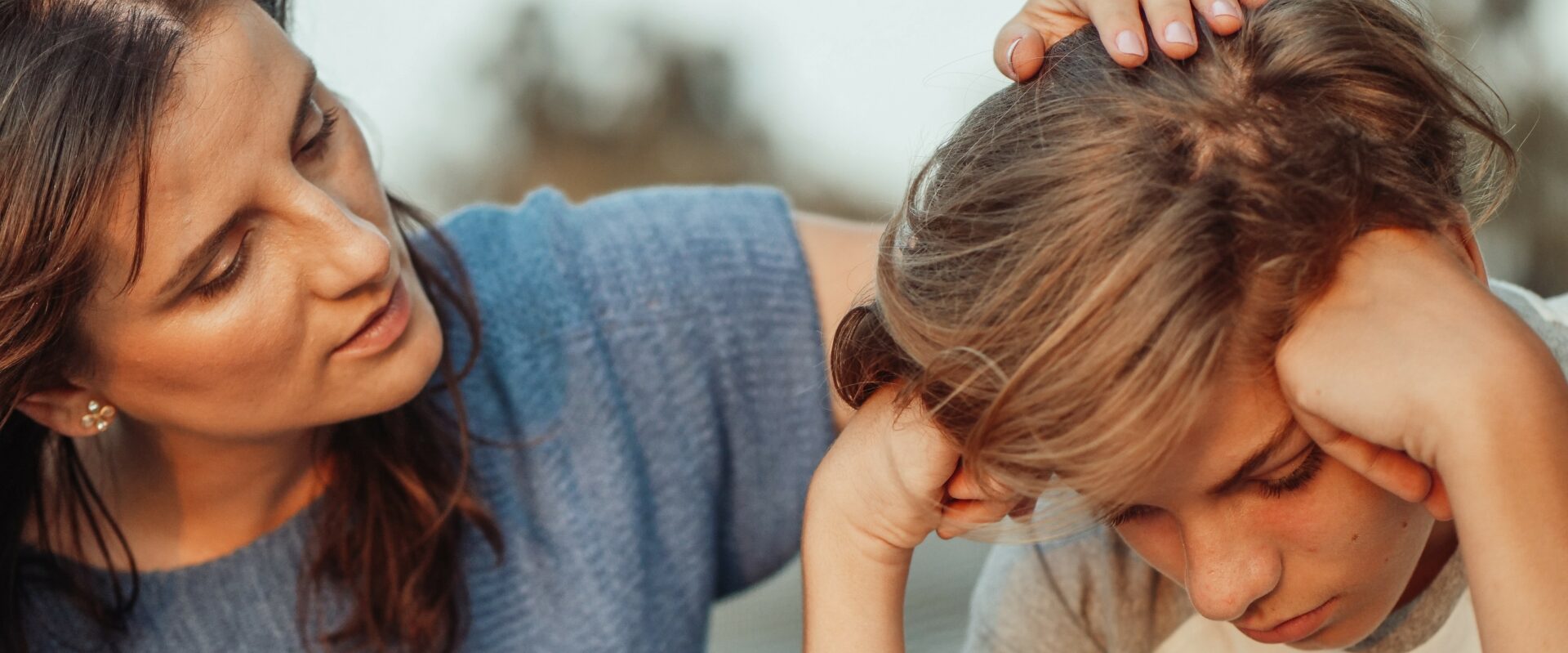Months ago, a student at my daughter’s high school died in a car accident. She found out about it like most young people find out about anything–on Instagram. She didn’t know him well but had “snapped” him a few times on the platform Snapchat and was understandably shocked that someone so young could be here one day and not be there the next. She’s no stranger to grief. My daughter was close to my mom (her grandmother) who died, and grief comes up a lot in our house given my line of work at Experience Camps, a network of grief camps for youth that are free for families. But the news was still shocking, and I was glad I had tips from our grief specialists that I could draw from to guide the discussion. Here they are in hopes they may help you too.
1. Try to stay calm when your child tells you the news. It’s natural that we get upset when our child tells us the news about a peer’s death. We feel heartache for the family of the child who died while our own worst fears often get stoked about what would happen if it was our child who died. But screaming, “That’s so horrible, I can’t believe it!” or inundating your child with questions (“Was he drinking?” “What time of day was it?” “What happened?!”) is only going to escalate anxiety for your child when they need you. Take a deep breath, and say something like, “Wow, that’s awful! How are you feeling about it?”
2. Listen to how your child is feeling. Yes, your child is clearly going to be distressed but there may be many reasons why, even ones we don’t expect. Maybe your child is feeling anxious for the sibling of the person who died; or guilty for not being nicer to the peer who died; or worried it could happen to them; or concerned that they don’t feel as bad as everyone else seems to feel. Maybe your child is worried about saying the wrong thing to classmates or friends. Give your child room to share feelings without any judgment.
3. You don’t have to know the “right” answers. If your child asks, “Why did this terrible thing happen?”, you may have religious or philosophical beliefs you want to share. Or, you may have no idea what the answer is and no idea how to respond. That’s okay. What’s important is that, a) you’re honest, and b) your child knows they can share their feelings with you, and c) you help hold space for their feelings. You can say, “I truly don’t know. But what I do know is that what you are feeling is okay. I am here to listen to you and support you. I may not always have the answers, or the answer that you are looking for, but we can try to find them together.”
4. They may look to you about what’s socially okay. In the case of my daughter, she didn’t know whether she should go to the funeral or memorial service. Should she post on the Facebook tribute page for him? Did she know him well enough? Was it rude not to? I helped her explore the intention behind each option. Did she want to go to the memorial service to be part of the community, because she didn’t want to get left out of a social event, because it would help her process, or something else? Again, there is no right answer–and there may be more than one reason–but we can at least help our kids make choices from a place of some clarity. I also told my daughter that she could attend the event(s) and leave if it felt overwhelming.
5. Leave the conversation door open. Maybe your child doesn’t want to talk much about the death, or the timing just doesn’t feel right. That’s okay, you don’t have to complete a discussion about what happened in one sitting. In fact, there’s a good chance that more questions will arise over the coming days, especially if they are talking to peers who also have ideas and thoughts. Let your child know they can share more questions or ideas with you as they come up. If you don’t know the answer, you can work it through together or try to find out more information.
Want to know what to say to a younger child after a peer dies? Read here.
 Michelle Cove is the Director of Communications at Experience Camps. She founded the nonprofit MEDIAGIRLS. She is an award-winning documentary filmmaker, journalist, and national bestselling author whose projects have been featured on numerous national platforms including “The Today Show,” The Washington Post, The Boston Globe, and The New York Times.
Michelle Cove is the Director of Communications at Experience Camps. She founded the nonprofit MEDIAGIRLS. She is an award-winning documentary filmmaker, journalist, and national bestselling author whose projects have been featured on numerous national platforms including “The Today Show,” The Washington Post, The Boston Globe, and The New York Times.
